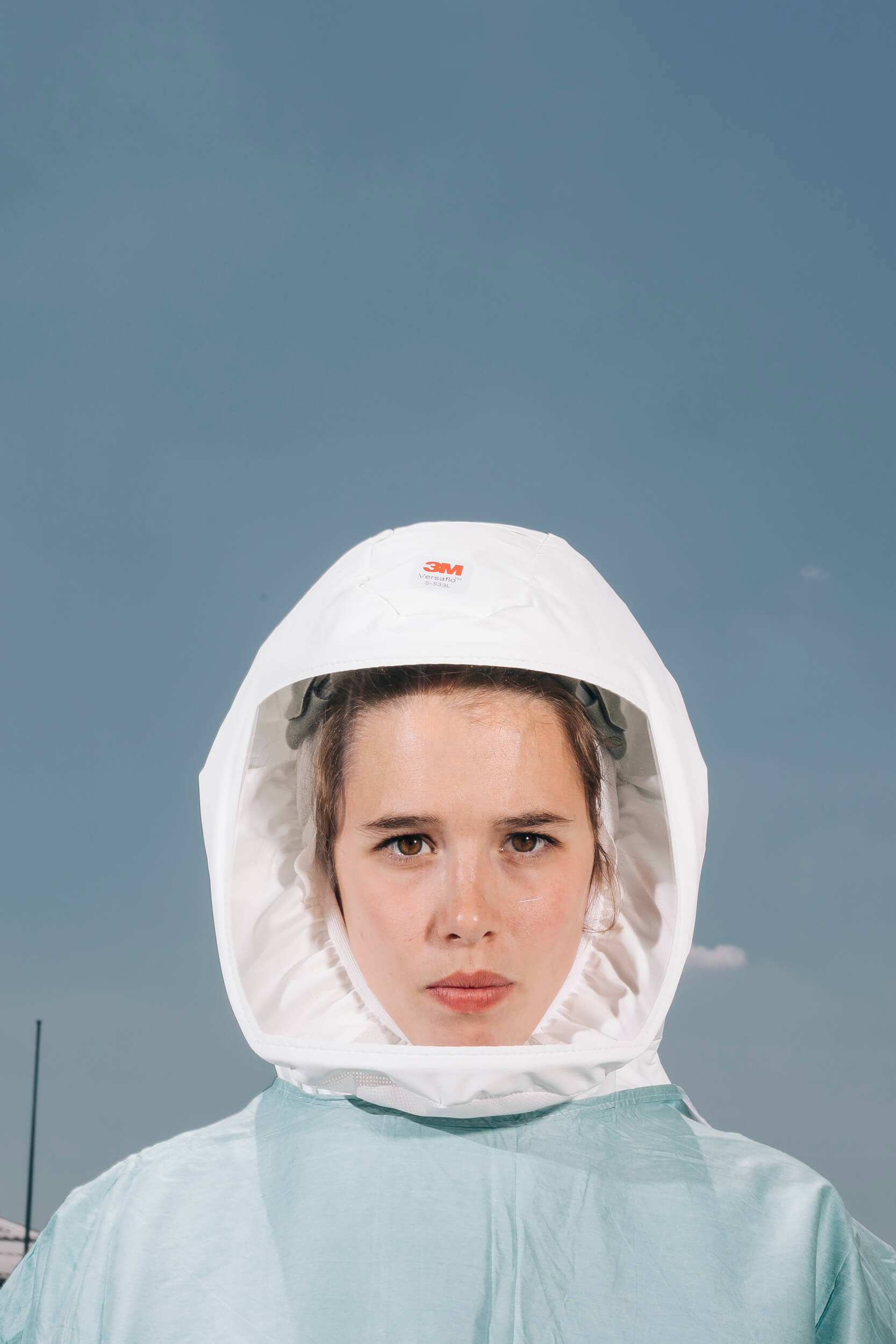Bird in Flight Prize ‘20 Finalist: Corona Rhapsody
Rafael Heygster, Germany
Since the outbreak of the global coronavirus (COVID-19) pandemic, we have often been confronted with the questions of what is actually happening around us.
For us, the situation felt like a surreal dream in which we had to re-orientate ourselves every few days.
We combine different aspects and scenarios happening during COVID-19 in Germany and show the tension between public life, the infrastructural apparatus behind it, and the people who move in this space.
We have chosen a theatrical pictorial aesthetic to play with our ideas of the pandemic and the crisis of our surreal feelings, and also the self-inscination of institutions. With “Corona Rhapsody” we want to show and question how the current pandemic is presented by the media and perceived by the public, to what extent this coincides with subjective experiences, how it is possibly being instrumentalised for political purposes, and how we will remember the coronavirus crisis in the future.
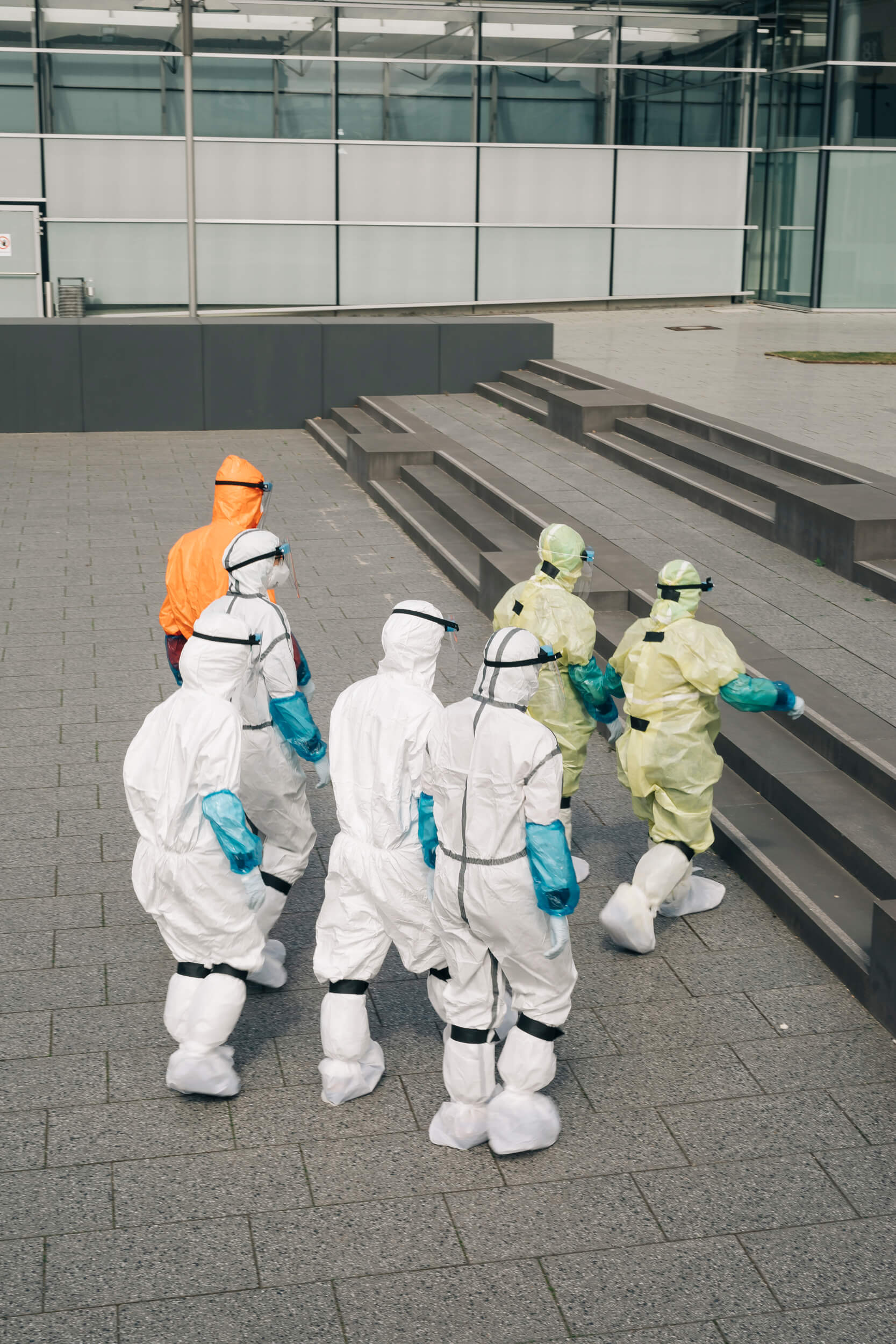
Soldiers on the way to an exercise at a makeshift hospital in the exhibition halls in Hannover.
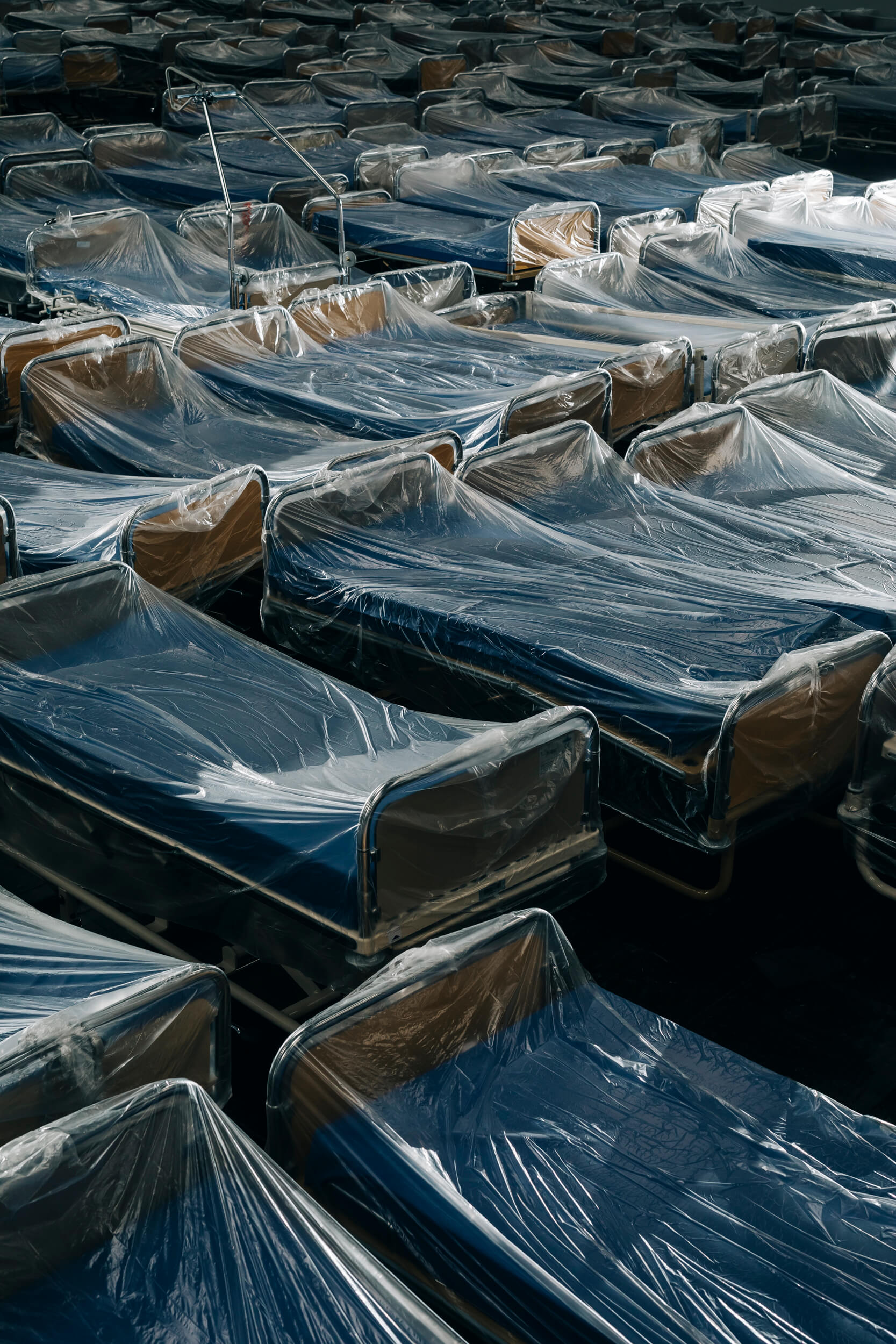
In Hannover Exhibition Halls, a makeshift hospital was set up in March. Where there would usually be trade fairs taking place in Hannover, treatment facilities were instead created for 500 COVID-19 patients. As of writing, it has not been necessary to open the newly built infrastructure.
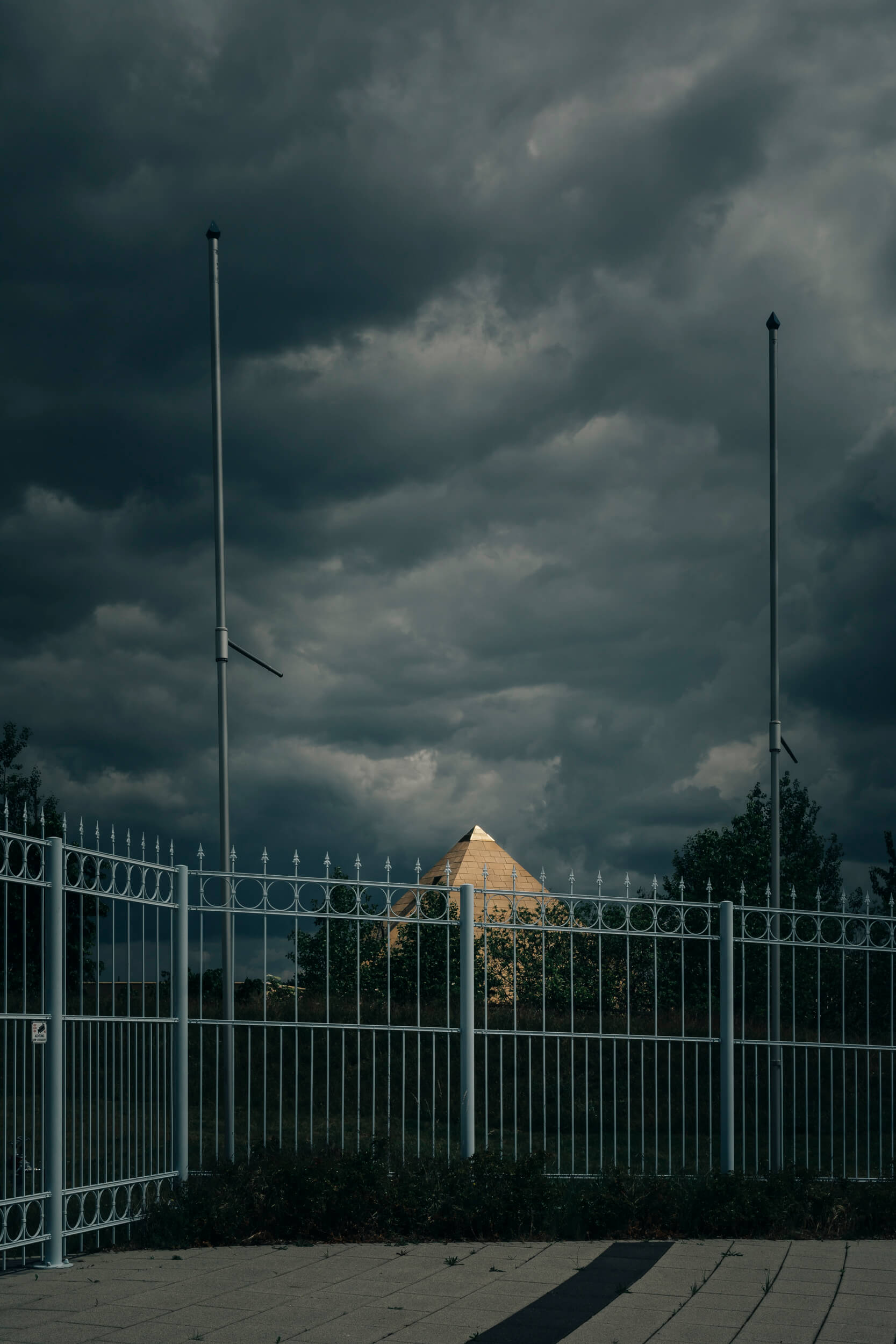
Due to the Lockdown Corona crisis, the season opening of the largest amusement park in central Germany has been delayed by 2 months. On 29.5.2020 Belantis can open the gates with new hygiene and safety protocols.
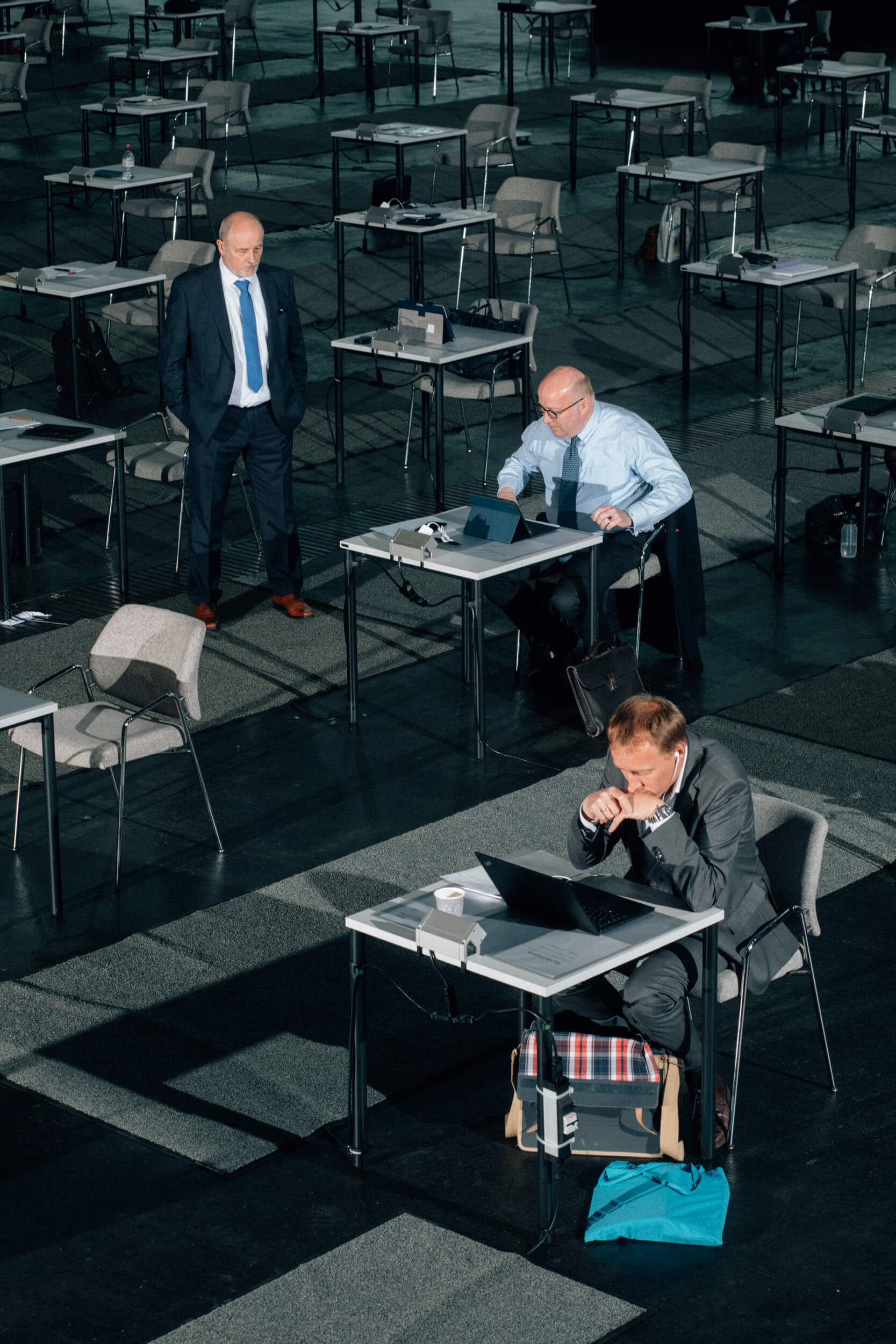
The Bremen parliament moved to the Exhibition Halls. The members of parliament now sit at individual tables with a distance of 1.5 meters between them to set a positive example for the citizens,according to a member of parliament. As soon as they leave the hall, however, many of them take the distance rules less seriously and stand closely together in groups without masks.
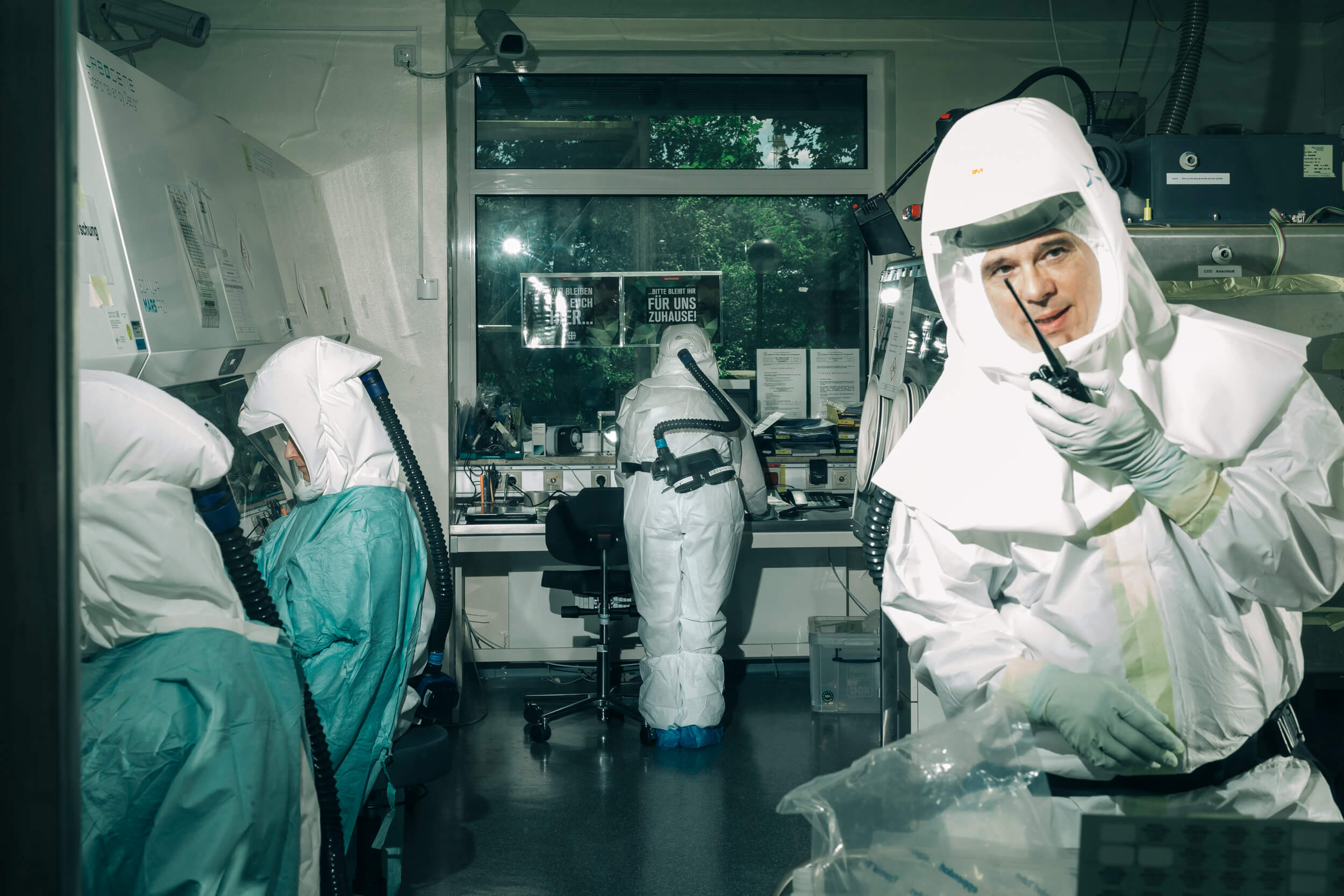
The Bundeswehr Institute for Microbiology in Munich specializes in researching and combating biological warfare agents. Research into the SARS-CoV-2 virus plays an important role in the current crisis. The first German COVID-19 case was diagnosed by the Institute at the end of January 2020. Since then, thousands of SARS-CoV-2 suspected cases have been tested and antibody research is continuously carried out.
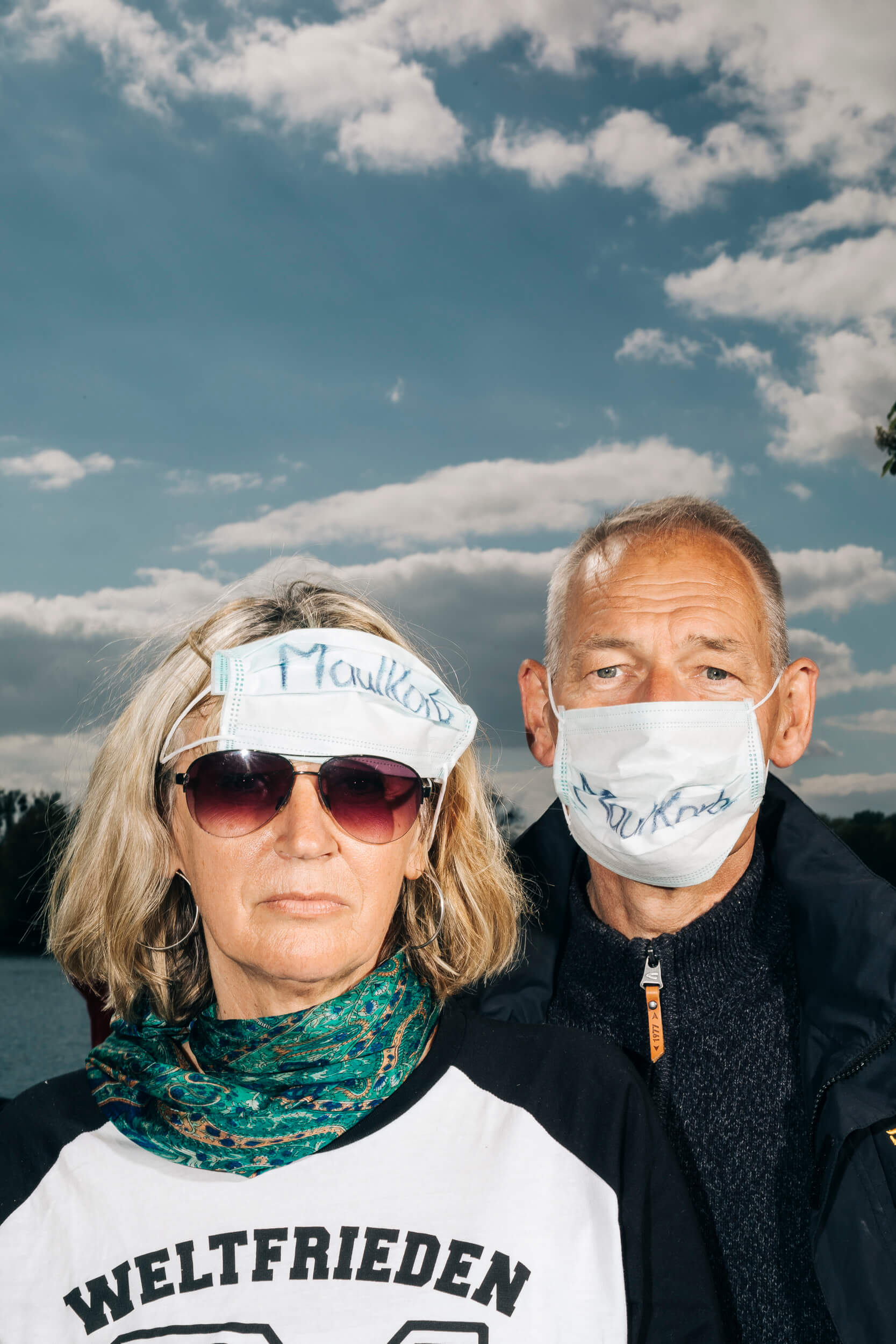
Ilona W. and her husband Andreas demonstrate at a “hygiene demo“ in Hanover together with right-wing extremist conspiracy believers who are protesting against the measures to limit the spread of coronavirus. They have written “muzzle“ on their protective masks.
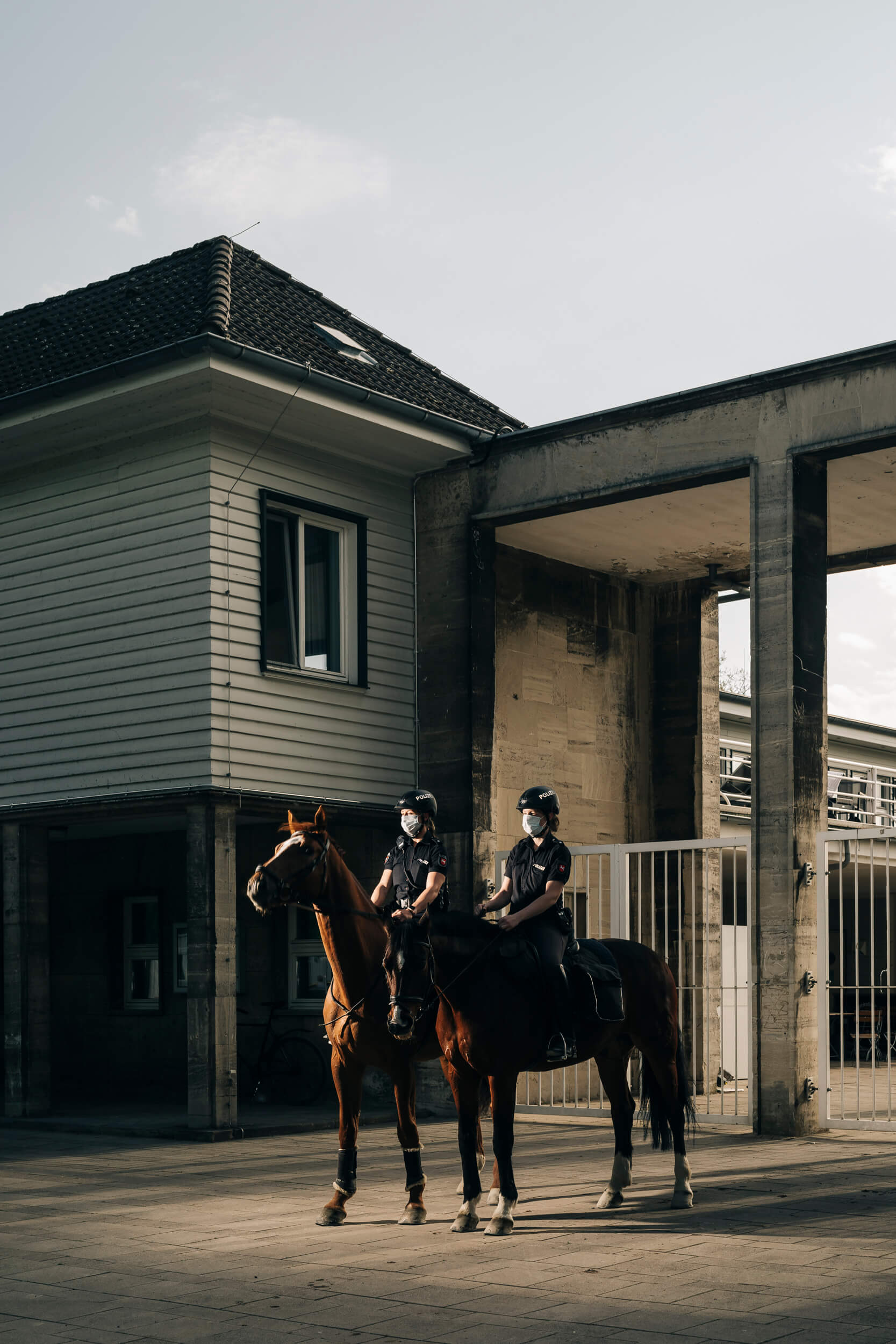
Police Women of the equestrian squad pose for a portrait during their patrol at the Maschsee, Hanover, on the day when masks became compulsory in Germany.
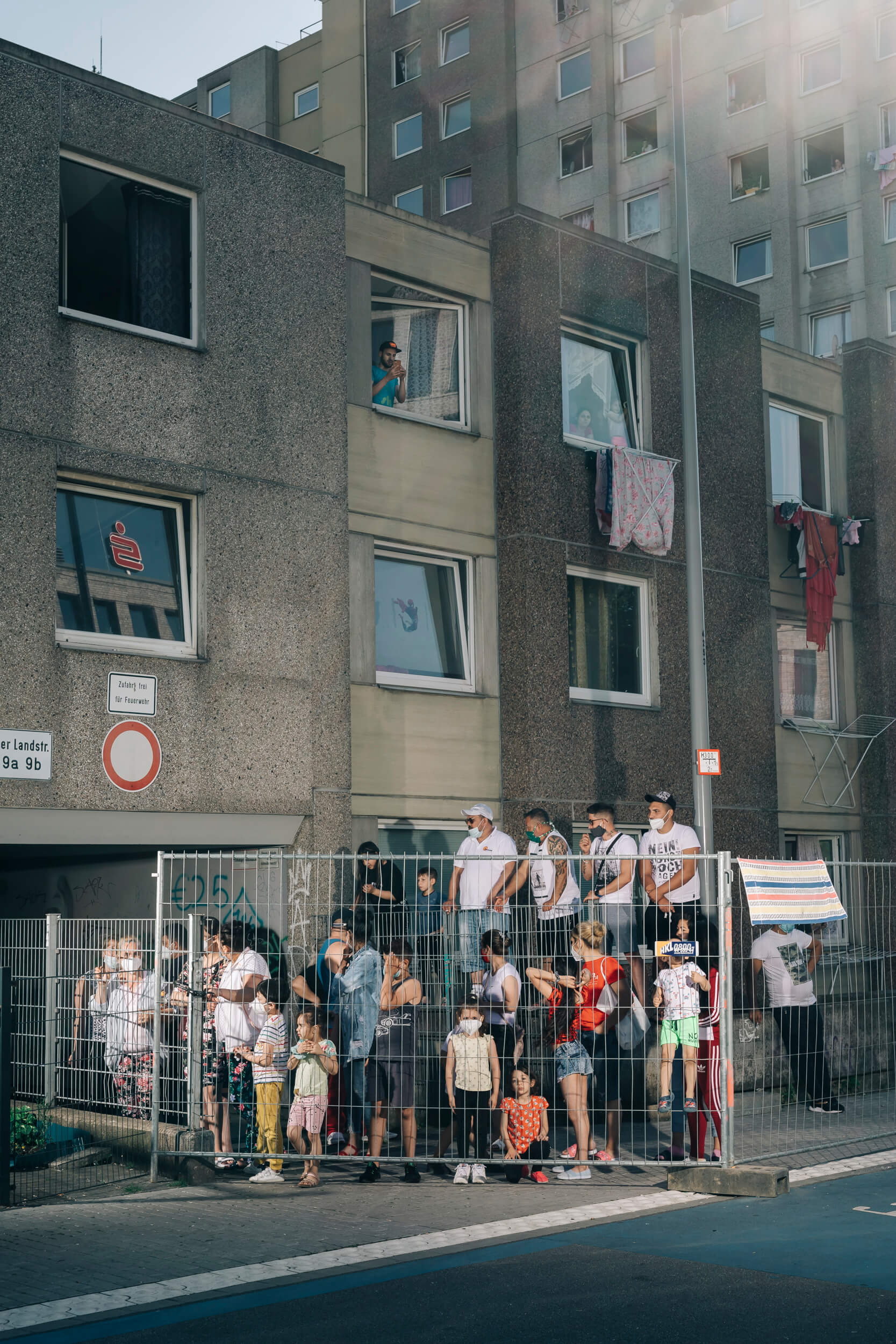
In mid-June, 120 of 700 residents of a prefabricated building are infected with coronavirus. The city bans all residents from leaving the housing complex, imposes a quarantine and puts up fences.
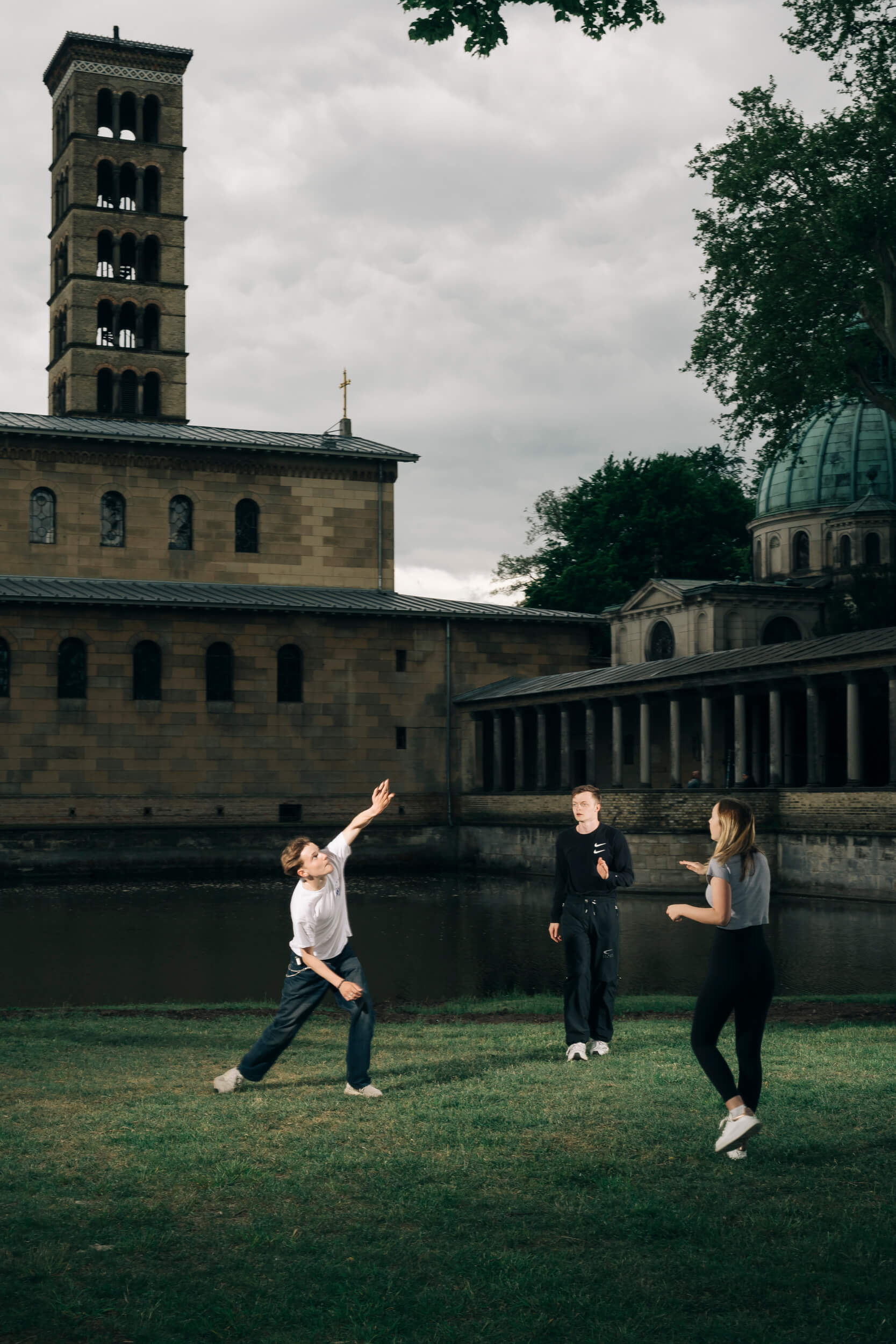
Most schools in Germany were temporarily closed due to the coronavirus crisis. Anton, Tillmann and Jette play one morning in May in a park in Potsdam, as they have only lessons in the school building two days a week.
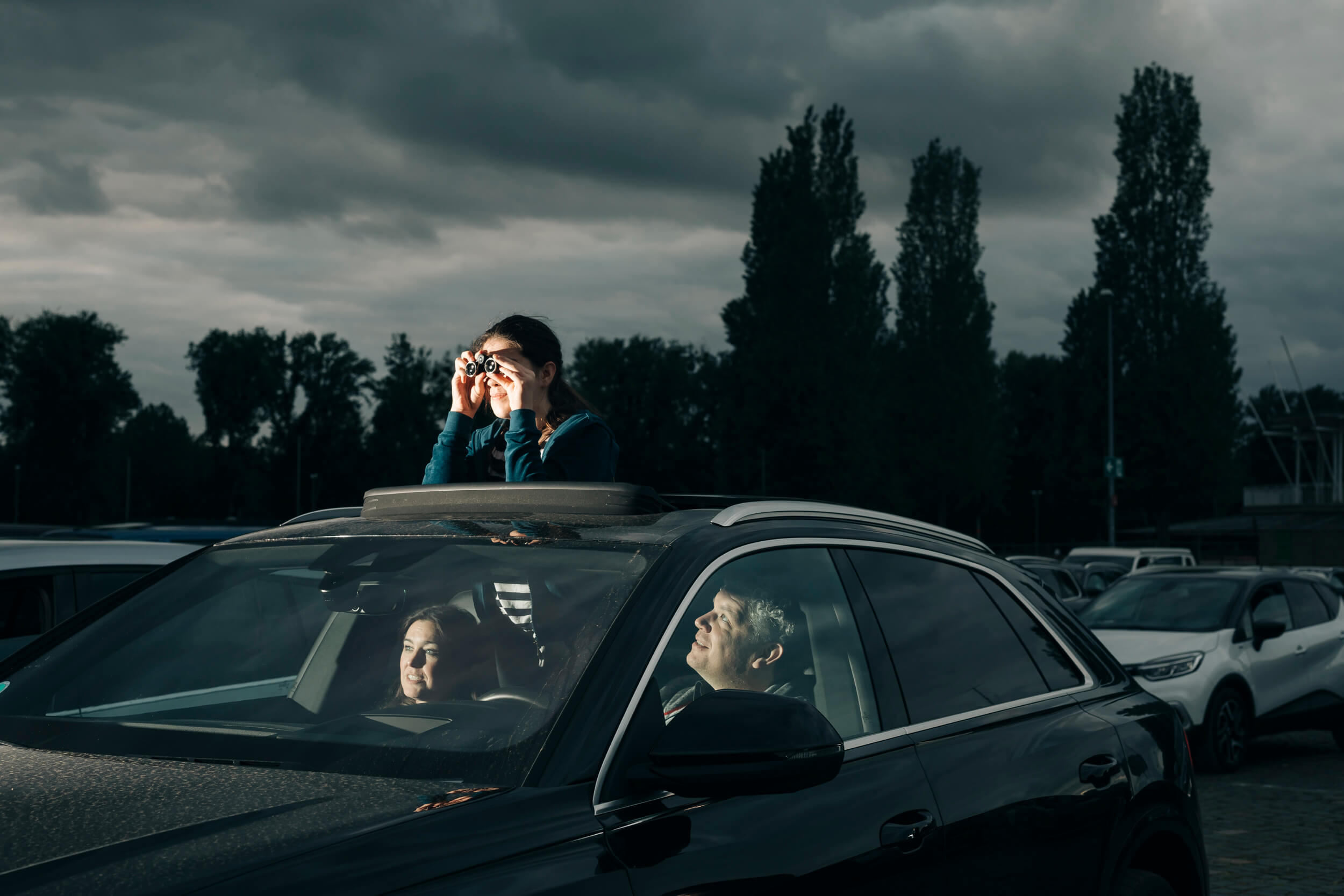
Since mass events are currently prohibited, the cultural industry is developing new ways of holding events. In Hanover, car concerts with up to 1200 vehicles regularly take place on the Schützenplatz. The Hwncke family attends a show of the rock band “Fury in the Slaughterhouse“. The music is transmitted to the car radios.
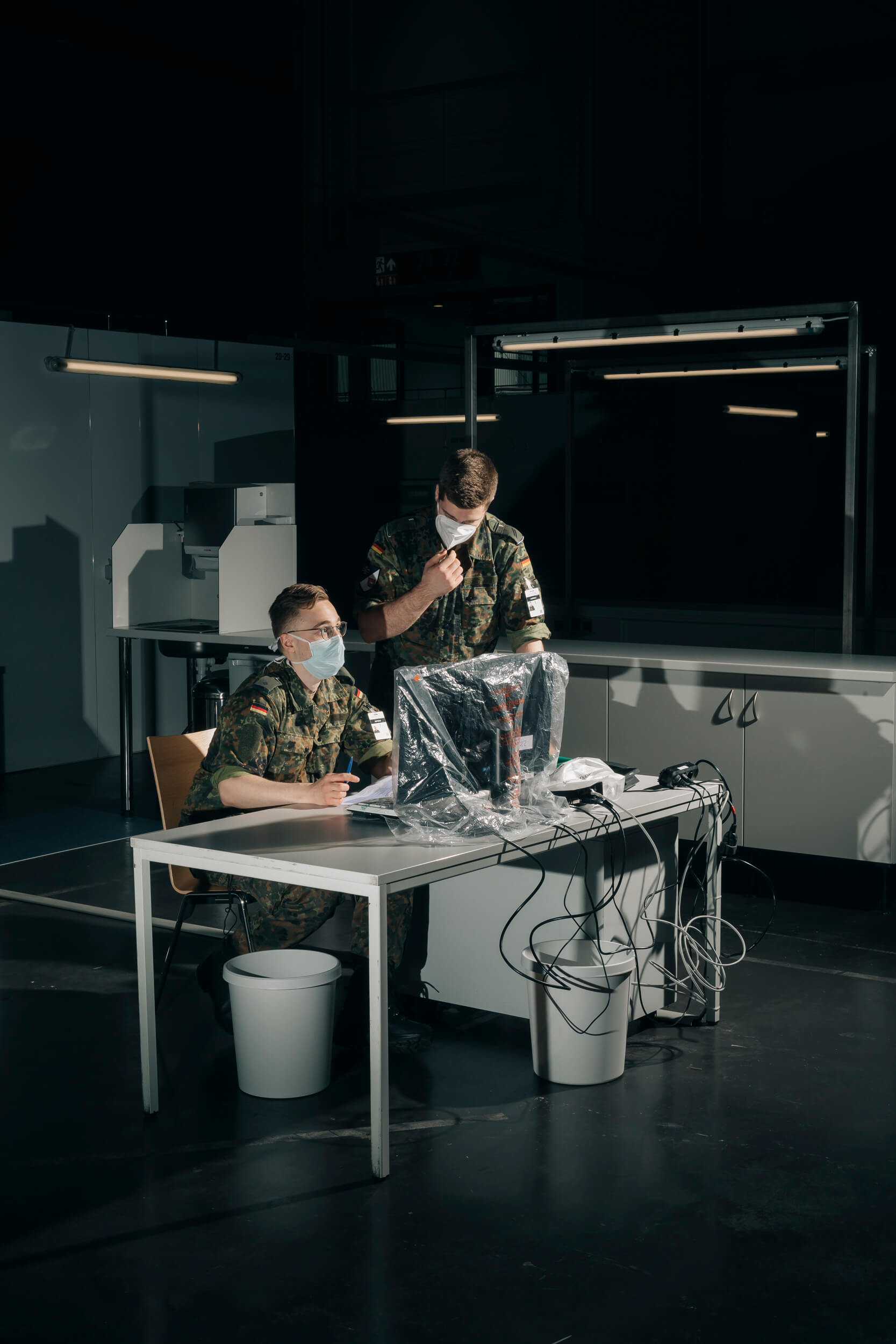
Candidate officers of the German Armed Forces who are studying medicine work out emergency procedures in the makeshift hospital on the Hannover exhibition grounds.
